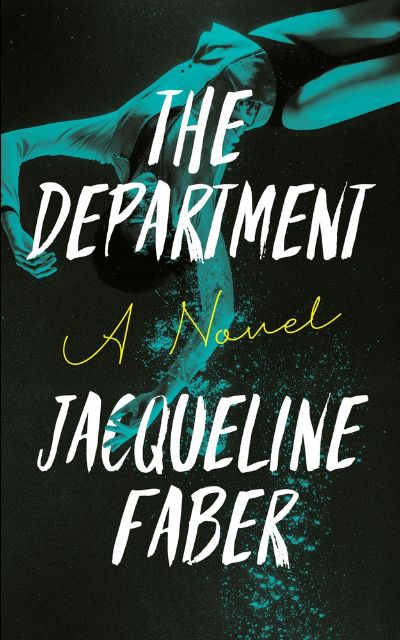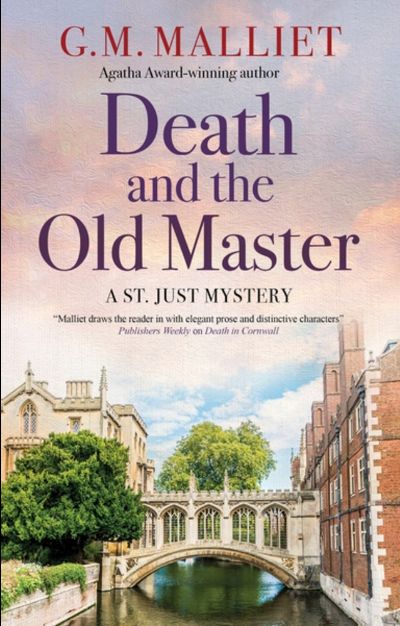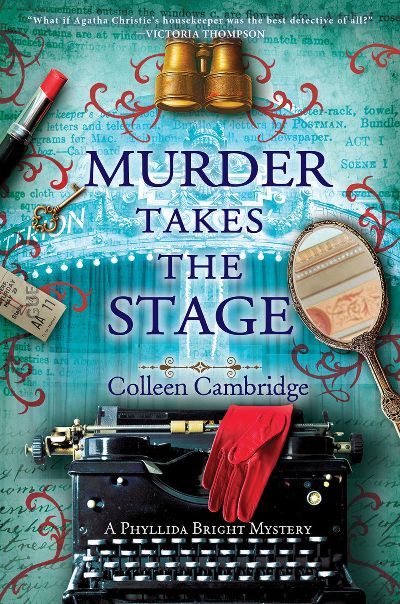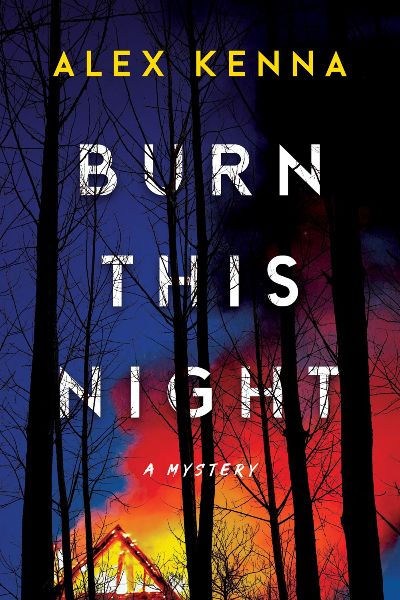Get ready to face big questions in Faber’s novel, one that uses a southern college’s philosophy department as a magnifying glass on relationships between haves and have nots; having power and not, that is. Decidedly a have not in this equation is Neil Weber, a professor whose chances at tenure are fading, a situation he’s desperate to change but too depressed to take real action over. Instead, he becomes enmeshed—his friends and the police say obsessed—with the disappearance of student Lucia Vanotti. This young woman, whose narration alternates with Neil’s, is technically a have not, the daughter of Italian immigrants who own a local restaurant. But a chance encounter has Neil placing her on a pedestal and desperate to find her. As he digs deeper into the student’s life and related goings on in the town, and before-disappearance Lucia brings us further into her trauma-ridden life, readers will ask, can love ever be enough? Who is a savior acting for? Humming in the background of the drama is the perplexing question of what happened to Lucia, the answer to which brings delicious twists. An absorbing debut.
Mystery & Detective
It’s the marriage of the moguls, and a crew of celebrities and business titans have gathered at a super-posh resort in Cabos to celebrate the wedding of Radhika Singh and Raj Joshia. The week-long affair—which we see through the eyes of Shaylee “Shay” Kapoor—is just about to begin. But Shay is far from belonging to a wealthy Indian-American family; something she is reminded of regularly. She’s the “plus one,” the girlfriend of Raj’s best friend, preppy Caleb Prescott III. But on the morning that the wedding is set to begin, Daniela, the wedding coordinator, finds the bride and groom dead, gunshots to the head, drug-lord style. With knowledge that there is a killer in their midst, chaos takes over the resort and the guests start swarming to leave. But Shay stays on, as the reader begins to realize that Shay isn’t what we thought. In fact, many of the inner circle, including Caleb, have alternate personas. Shay’s still an outsider, but that’s just what might be necessary to uncover the truth. For those who enjoy closed circles, family drama, and sinister resorts.
It’s November 1940, and Evelyne Redfurn has returned to her London boarding house after six secretive, grueling weeks of training to be a Special Investigations Unit (SIU) agent for the British government’s Special Operations Executive (SOE). But before she can relax with her roommate and best friend, Moira, she’s called up for her first assignment. Hoping to be parachuted into occupied France (her mother was French), Evelyne is disappointed when she is sent instead to investigate the possibility of theft at a weapons research and development facility in rural Sussex. Worse, her handler is her old sparring partner, David Poole. On Evelyne’s first night, however, a routine probe becomes a murder case after she stumbles upon the body of Sir Nigel Balram, the leader of the engineering team at Blackthorn Park. His death appears to be an act of suicide, but drawing on the sleuthing skills she honed in A Traitor in Whitehall, Evelyne and David race to identify a killer before Prime Minister Winston Churchill’s impending visit. The clever and resourceful Evelyne is an appealing protagonist, who struggles to maintain her close friendships without revealing her double life as a spy. Her budding chemistry with David is obvious but doesn’t distract from the main plotline. Fans of Susan Elia MacNeal’s Maggie Hope series will delight in following the adventures of a promising new World War II spymaster.
Set in the rarefied atmosphere of a Cambridge college, this excellent mystery has Detective Chief Inspector Arthur St. Just interrogating a wide assortment of characters—from the college porters to art historians, from curators to super-rich American graduate students—all to discover who killed Sir Flyte Rascallian, the master of his college and a renowned art historian. Why kill Rascallian? Because, we are led to believe, he may have recently inherited a Rembrandt, unleashing no end of speculation. Excellent art mysteries are always rich in atmosphere and complex in plot, and Death and the Old Master does not disappoint, bringing the reader as far back as the Monument Men (and Women) who worked during World War II to recover and restore stolen cultural treasures. A sophisticated and effortless read that is one of Malliet’s very best.
Mysteries and the theater make for wonderful marriages—there are scores of examples—and this recent contribution from Colleen Cambridge is completely on point. Agatha Christie and household have temporarily moved from her country estate, Mallowan Hall, to London. The exiles include Phyllida Bright, Christie’s housekeeper (and so much more, including amateur sleuth). But Phyllida is a bit stressed out. She has a love/hate relationship with London—something is making her nervous—plus there is the staff to manage, including the temporary faux-French chef. But enough with the escargot, there’s a murder (Archibald Allston in the Adelphi Theater) followed by another (Benvolio at the Belmont Theater). See where this is headed? Death by alliteration, unless Phyllida gets there in time. This delightful mystery provides a fun look at London’s historic theaters, a glimpse at London’s LGBTQ nightlife, a splendid dénouement right out of a Christie novel, and most remarkably of all: a love interest for Phyllida. Lots of fun to be had here.
Nura Khan has taken over Piyar, her grandmother Khala’s matchmaking business, which is a mix of old and new. Matchmaking is traditionally how young people in her Pakistani American community find their spouse, but Nura will only work with the prospective bride or groom, not their parents, and the young couple meets and dates before marrying. Nura grew naturally into the role; her father died before she was born and after her mother died in an accident, she went to live with her loving, successful aunt Khala, eventually taking over the Atlanta business. She loves the work, but there’s a problem: she’s single, and for a matchmaker who’s already reached the ripe age of 31, it’s not the best look. That’s why she brings Azar, her childhood friend who at one point almost became more—how she wishes it did!—to the many events involved in desi wedding celebrations. A worse problem arises when Piyar’s matches start to go terribly wrong and the business is getting trashed on social media. It’s a dangerous path to finding out who could have a grudge against Nura, one that brings in handsome doctor Azar and Nura’s lovable circle of friends and employees. Desi readers, fans of the reality shows dedicated to matchmaking, and everyone who loves a mystery and romance combo will savor YA author Saeed’s first novel for adults.
Thirty-two years ago, curmudgeonly, old-school Detective Superintendent Peter Diamond of the Bath CID made his literary debut in the Anthony Boucher Award-winning The Last Detective, exonerating a woman accused of murder. Three decades later, the seasoned cop, much to his dismay, is under pressure to retire. For Diamond, whose identity is tied to his job, “retirement is the waiting room for death.” But his partner, Paloma, convinces him to accept his former colleague Julie Hargreaves’s invitation to visit her in the quaint village of Baskerville. Leaving the mean streets of Georgian Bath for rural Somerset, Diamond soon learns that Julie has an ulterior motive for his visit; unable to proceed further in her inquiries due to a physical disability, she wants her old boss to reexamine (unofficially) the manslaughter conviction of farm owner Claudia Priest for the suffocation death of a man in a grain silo. Julie suspects that the fatal accident was murder and that someone other than Claudia was responsible. Embarking on a busman’s holiday as an undercover detective, Diamond aims to solve his first village mystery, even if it means mucking in real mud (including reluctantly helping a cow give birth). As he tries on different amateur sleuthing hats (bumbling Columbo, nosy Miss Marple), he begins to learn things about himself that reveal there might be a possibility of a good life after retirement. MWA Grand Master Lovesey bids a fond farewell to his protagonist with this bittersweet series finale that mixes a cozy Midsomer Murders setting with colorful characters, surprising twists, and plenty of heart and humor.
It’s hard to imagine, but one of the very best series has gotten even better. While the first three books were set around 2016, and featured Rozie Oshodi, Assistant Private Secretary (APS) to the Queen, here we jump back to 1957. The Queen is a young woman, still new to her role as monarch; the U.K. continues to recover from the Second World War; and a new APS emerges out of the typing pool: Joan McGraw, whose wartime work included decoding. This case is centered around a notorious murder: a young woman, a high-class escort, is found dead in a house in Chelsea that belongs to an elite men’s club. She is wearing only silk underwear and a diamond tiara. Nearby lies the body of an older man, garrotted. The double-murder grips Londoners, including the Queen, who has her own reasons for fearing that someone close to her could be implicated. Elizabeth doesn’t trust the old courtiers who surround her and turns to Joan for help in solving the case of the “tart in the tiara.” Besides a bang-up plot, this novel reaches brilliantly into Elizabeth’s life, from real-life state visits to Paris and North America, trying to bolster the U.K.’s relationships, to her tumultuous relationship with Philip, to her fear of a scandal that could take down the monarchy. This is deep, rich writing that should attract the millions who enjoyed The Crown, and want yet more.
Kate Myles has a lot going on. The former LAPD cop, her career ruined by a pain-pill addiction brought on by a car crash, has lost her marriage and custody of her beloved daughter, Amelia. She’s now working as a private detective, rolling her eyes at old-time movie assumptions. It’s far from glamorous, and she’s far from ready for more drama in her life. But no matter: while living at her mom’s, she discovers paperwork that leads her on a quest to find biological relatives, a plot line that includes an intriguing aspect of the use of DNA in crime cases, and that also leads her to Idlewood, a town with a sad history. Hired to clear the name of a drug addict who’s accused of killing his sister in an arson attack, she also investigates a local cold case, of a young woman who was killed years before. How all these things are related is the story of every small town, with Kenna perfectly portraying the intertwined regrets, missed opportunities, and love that make each place unique. Better again is her portrayal of Myles, a gutsy, lovable character who pushes herself to the brink and more for those she loves. A thoroughly enjoyable read.
Settle in for a truly wonderful read as Geneva Bay, Wisconsin prepares for the holidays. For pizza chef Delilah
O’Leary, and her crew, a glitzy Chrismukkah catering gig in one of the local mansions gets things started, but when Delilah’s family shows up out of the blue with their own set of hostilities and anxiety-producing behavior in tow, things take a decidedly unpleasant turn. And any hopes that the next day’s annual snow-sculpting championship will cheer everyone up—Delilah attends with now-boyfriend Detective Calvin Capone (yes, that Capone family)—are dashed when a corpse is found frozen in the ice. Quigley employs a large cast of characters, from the formerly incarcerated and now dishwasher “Rabbit” (where did he disappear to?) to Sonya, Delilah’s bestie who helps Delilah sort out her relationship with Capone, to Delilah’s grumpy sister Shea, who most definitely has something up her sleeve. The miracle is that we can follow each character with ease, their identities are so well drawn, while caring about each of them. Add to this a bucketful of red herrings sure to send readers in a dozen different directions. Fire up the pizza, cue Mariah Carey, and make sure the cat is comfortable: cozies just don’t get better than this.










